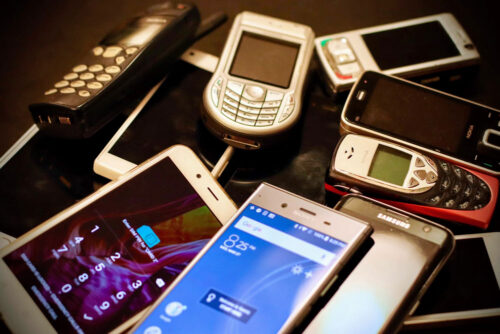Recent reports on national television (BBC News) have reported that the Royal College of Paediatrics and Child Health (RCPCH), which oversees the training of specialists in child medicine, has produced guidance for under-18s on the use of screentime:
It said there was “no good evidence that time in front of a screen is ‘toxic’ to health, as is sometimes claimed”. The review of evidence found associations between higher screen use and obesity and depression. But the college looked at this and said it was not clear from the evidence if higher screen use was causing these problems or if people with these issues were more likely to spend more time on screens.

The review was carried out by experts at University College London, including RCPCH president Prof Russell Viner.
The report from the RCPCH used research some of which is summarised below to inform their report:
Effects of screen time on the health and well-being of children and adolescents: a systematic review of reviews
“There was weak evidence for associations of screentime with behaviour problems, anxiety, hyperactivity and inattention, poorer self-esteem, poorer well-being and poorer psychosocial health, metabolic syndrome, poorer cardiorespiratory fitness, poorer cognitive development and lower educational attainments and poor sleep outcomes. There was no or insufficient evidence for an association of screentime with eating disorders or suicidal ideation, individual cardiovascular risk factors, asthma prevalence or pain. Evidence for threshold effects was weak. We found weak evidence that small amounts of daily screen use is not harmful and may have some benefits.” – Russell M Viner BMJ
The report itself however did identify some weaknesses in its own methodology:
- Strengths and limitations of this study
- Undertook a systematic review of reviews in multiple electronic databases using a prespecified methodology.
- Included only studies that directly reported screen time separately from other sedentary behaviours.
Used assessment of review quality and weight of supportive evidence to assign strength of evidence to findings. - Quality of included reviews was predominantly moderate or low, dominated by studies of television screen time, with screen time largely self-reported.
- Data on mobile screen use was extremely limited and our review did not address the content or context of screen viewing.
Well with all the above being well and good, I think as a parent (two boys 15 and 17) who have grown up in the digital age and who both have iPhones, an iPad Mini, access to internet, TV, XBox, Nintendo Wii and Sky TV (do they sound spoiled?) I think I am somewhat qualified to comment. However if you look at the rules that we used in our house, you would have thought that someone who has been involved in the sales of mobile phones and technology for over 20 years would have been slightly more relaxed about the use of screens within the home.
Our children were never allowed to have a TV in their bedroom, as parents, my wife and I both felt that given the opportunity any child would watch TV all day and night. We also never allowed our children to have mobile phones or smartphones until they were in secondary school, why would they need one? We also demanded that up to the age of 16 (therefore still do) that all phones and iPads were handed in at 9.00pm latest to encourage some down time before bed, the thought being that may be they might take the time to read a book!
Without the medical establishment condoning or not the use of screens and technology we had worked out from our own experience that young children seem to go into some sort of trance when plonked in front of a screen, which we used like most parents, when needed, to deliver some welcome peace and quiet without the need of a babysitter. Therefore if this effect is noted at an early age why does it not transpire that this screen worship would not continue until early adulthood.
I quote Chuck D of Public Enemy “Television the drug of the nation”.
Even now we can tell when our children have been on the Xbox too long or have been watching YouTube all day, they seem to lose all motivation to do anything else (see Chuck D), therefore I would argue that although there is currently no clear medical evidence to support the need to limit our children’s time in front of any screen, common sense would inform us otherwise.
Subscribe for latest mobile news, tips and exclusive offers straight in your inbox
Head to directmobiles.co.uk for the latest smartphone and SIM only deals
For the latest smartphone video reviews, visit our YouTube channel Direct Mobiles TV
Follow us on and never miss an update…
Facebook: https://www.facebook.com/directmobilesuk
Twitter: https://twitter.com/DirectMobilesUK
Instagram: https://www.instagram.com/directmobiles/
LinkedIn: https://www.linkedin.com/company/direct-mobiles-uk/
The DMob Podcast: https://open.spotify.com/show/7mTrNvRCXWWnkGilycRL7s
Amazon Alexa: Just say “Alexa, enable Direct Mobiles” or https://www.amazon.co.uk/JMF-Digital-Direct-Mobiles/dp/B07B44P295









